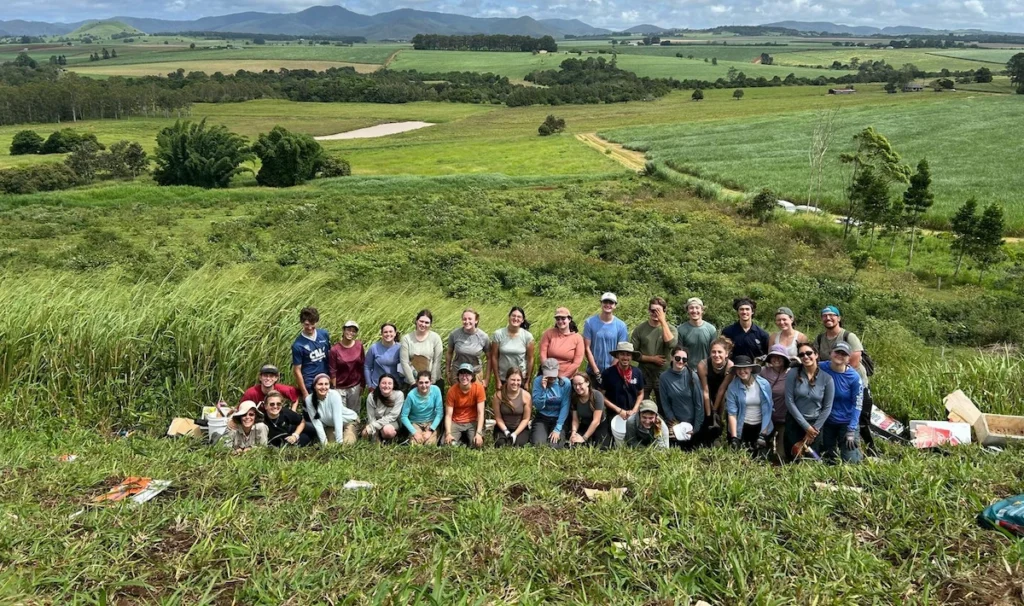Conducting Research and Making a Difference in the Tarangire-Manyara Ecosystem
Having returned from the Serengeti Expedition, students embarked on the proposals for their individual research projects: conducting background literature research at the Camp, coming up with meaningful research questions and designing an adequate study design and field protocols.
 <
Only a few days later, students were already out in the field and started collecting data that would help answering important questions in the Tarangire-Manyara Ecosystem. Students conducted interviews in Maasai bomas to investigate impacts of climate change on local livelihoods, interviewed farmers bordering Lake Manyara National Park about human-wildlife conflicts, tracked wildebeest on foot in the Maasai steppe and carried out extensive wildlife surveys in Lake Manyara National Park, the community area and a ranch where livestock and wildlife are managed to co-exist.
Within just 8 to 9 days out in the field, students managed to collect a considerable amount of data and gained a thorough understanding of wildlife and human livelihoods in the ecosystem. Some projects even continued previous Directed Research projects so that we now have data on wildlife populations over all seasons (short rains, long rains, dry season).
<
Only a few days later, students were already out in the field and started collecting data that would help answering important questions in the Tarangire-Manyara Ecosystem. Students conducted interviews in Maasai bomas to investigate impacts of climate change on local livelihoods, interviewed farmers bordering Lake Manyara National Park about human-wildlife conflicts, tracked wildebeest on foot in the Maasai steppe and carried out extensive wildlife surveys in Lake Manyara National Park, the community area and a ranch where livestock and wildlife are managed to co-exist.
Within just 8 to 9 days out in the field, students managed to collect a considerable amount of data and gained a thorough understanding of wildlife and human livelihoods in the ecosystem. Some projects even continued previous Directed Research projects so that we now have data on wildlife populations over all seasons (short rains, long rains, dry season).
The past week was dedicated to data organization and analysis, or in other words – to provide substantial evidence for the patterns observed in the field. After a first small confusion about the meanings of F-, p-, and t-values, degrees of freedom, and logarithms, students have become very knowledgeable in statistical analysis of their data and are already writing up their papers now.
Completing the entire research circle – planning, data sampling, analysis, and write-up – in less than 4 weeks is very challenging but extremely rewarding and we look forward to presenting the results to local stakeholders at the end of this semester. As we are addressing many important questions, recommendations derived from SFS research may help to make a difference in the conservation of the Tarangire-Manyara Ecosystem.
Related Posts

Cinder Cone Chronicles: Lessons from Drought, Data, and Determination

Restoration on a Cinder Cone: A Syntropic Story
